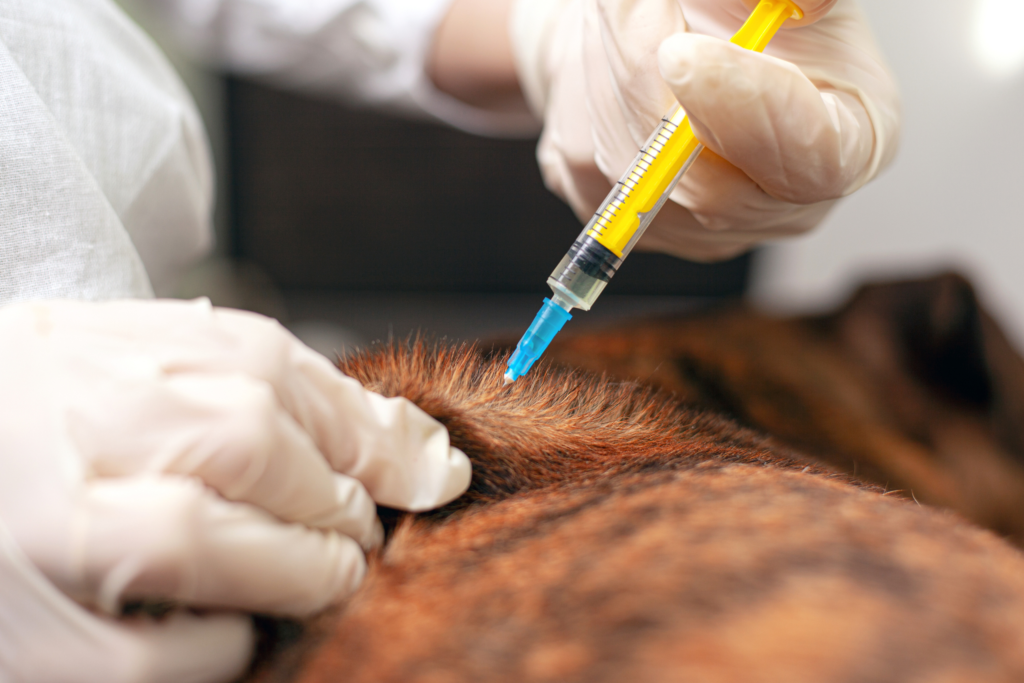Sometimes feeding or loving a stray animal is not enough. We must stay alert from all angles for their well-being, whether vaccinations, sterilization, etc. It is generally the animal welfare organizations that conduct vaccination drives. And it is high time for the public to contribute to it. Vaccination in stray dogs is an essential public health measure. It not only protects the health of dogs but also reduces the risk of transmission of infectious diseases to humans and other animals.
Nonetheless, controlling the population of our furry friends on the street has become urgent. And maintain good health for the ones around us. We have already talked about the deteriorating condition of stray dogs and the viral diseases they suffer from. Ultimately, it is time we do something about it.
The most common vaccine given to stray dogs is the rabies vaccine. More than a necessity or health concern, it is required by law in many countries. Other vaccines may include canine distemper, parvovirus, hepatitis, and other infectious diseases. It wouldn’t be wrong to say that it is crucial to get stray dogs vaccinated. Let us see why!
How to know if a Stray Dog is Vaccinated?
Before planning a vaccination for a stray dog, we must know its history of, medical records, vaccinations, allergies, and treatments. It can be difficult to judge whether a dog is vaccinated, especially with street dogs without medical records. However, you can follow a few signs to figure it out smartly.
- Ear Tags: Most of the vaccination programs for our furry friends use ear tags or tattoos to mark that the dog is vaccinated.
- Collar: A stray dog with a collar does not necessarily mean vaccination. But it could be possible that it was previously in a home with a human and must be vaccinated.
There are other signs you can watch out for, like the dog’s behavior. And if that area conducts regular vaccination programs for stray dogs.
Importance Of Vaccination for Stray Animals
Protection from Diseases
Our furry friends suffer from multiple diseases and infections on the street. Their wounds are often an open invitation to flies and maggots that worsen the conditions. Vaccination can protect stray dogs from deadly diseases like rabies, parvovirus, hepatitis, etc. These diseases can rapidly among dogs, and vaccination can prevent that. Not every disease has a cure, but prevention is a must. Vaccination is beneficial not just for stray dogs but as an overall health improvement.
Improving Animal Welfare
We are responsible for looking out for the speechless souls on the street. Stray dogs are loyal to people who treat them with love and care. Regardless of their lovely appearance, they are exposed to harsh living conditions and suffer from malnutrition, injuries, and diseases. Vaccination for stray animals can enhance their entire lives. It can help improve street animals’ overall health by providing the necessary medical care, including vaccinations.
Reducing Healthcare Costs
Let’s read it out again; Prevention is better than Cure. It is not just the money that matters; the animal has more chances to survive if it receives vaccinations. Any treatment requires more money, precision, effort, and prayers. It is a hard ask of communities, organizations, and general dog lovers with limited sources. Vaccinations can be a healthy way to secure a thriving life for your pups. Vaccinating stray dogs can prevent the spread of diseases and reduce the need for expensive medical treatments.
Controlling Population
It is debatable whether it is ethical to control the population using sterilization. That’s a different subject, but it is crucial to mention that it is easier to provide a blooming life to 100 dogs than 10000. Vaccination programs for stray dogs often involve spaying and neutering as well. It helps to control the population of dogs in a particular area. Ultimately, it reduces the number of dogs on the street, gradually decreasing the risk of dog attacks and the spread of diseases. Therefore, fewer number dogs, and more caretakers, makes the whole situation far better.
Vaccination for stray animals is integral to public health and animal welfare measures. It is a step forward to improve community safety. And it is time for people to understand its importance and play their part in the program.

